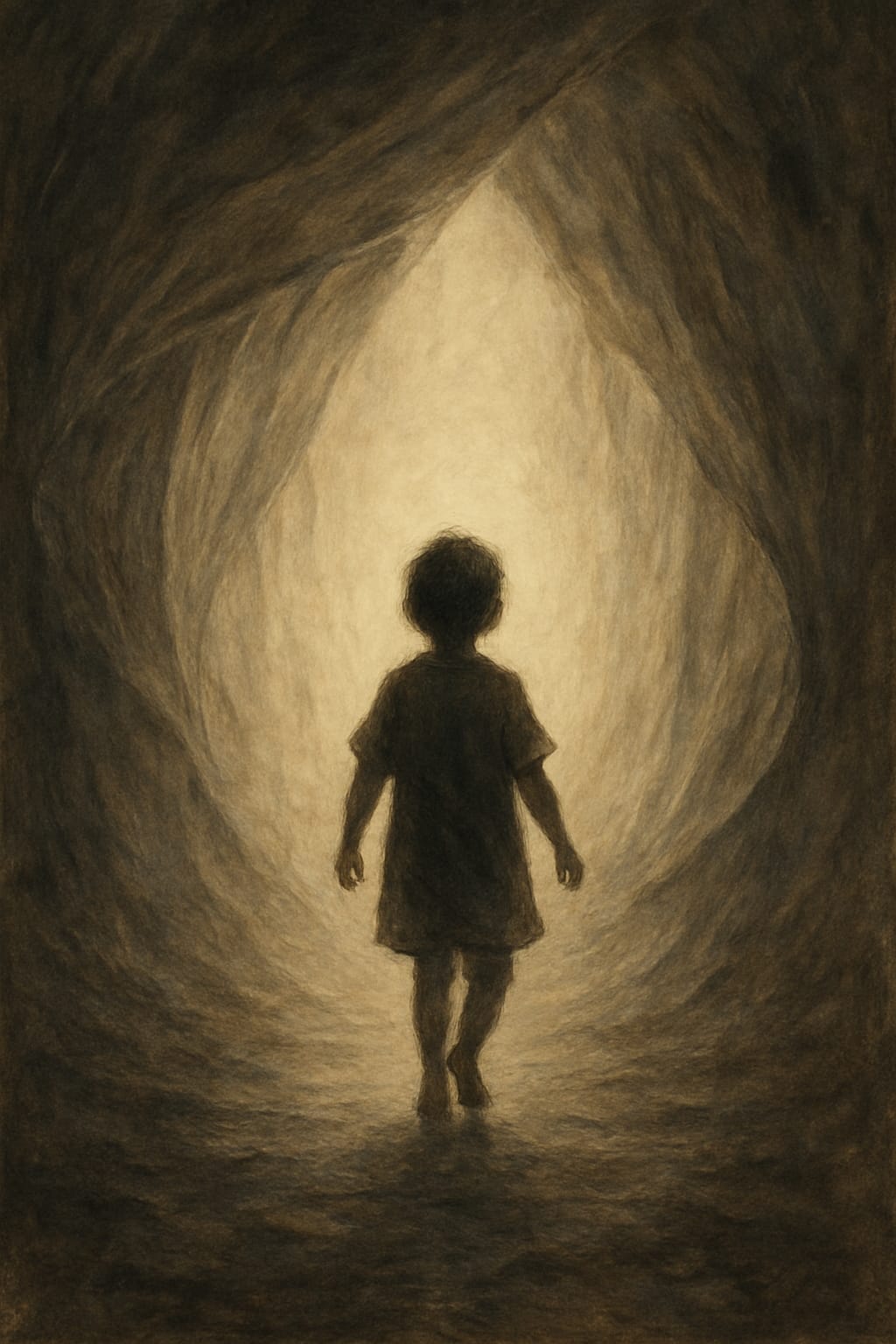“The Veil of Illusion: A Journey from Innocence to Enlightenment”
May 15, 2025 | by priyanka Rathod

From the moment we are born, we are thrown into a world that seems vibrant, real, and full of love. As infants, we are free from the burdens of morality or ambition. Our entire universe revolves around our parents or guardians. In those early years, joy comes naturally, and sorrow is expressed through tears—not out of existential worries, but from fleeting discomforts. We live fully in the present.
“Children see magic because they look for it.” – Christopher Moore
As we grow into teenagers, we begin attending school, not out of personal desire but because society expects it. We rarely question why we’re learning or what purpose education serves. We are more absorbed in friendships, games, food, and dressing well. This phase is more about experience than understanding.
Then arrives adulthood—a stage that appears to demand clarity but is often driven by confusion. Most of us start following the crowd. If everyone around us is becoming an engineer or a doctor, we do the same. Not because we dreamt of it, but because it seemed like the ‘right’ path. I, too, chose engineering—not out of passion but out of imitation. It felt like the safest bet.
“We are not born with a purpose. We are born with potential.” – Unknown
Our twenties are often romanticized as the golden years. It is a time of thrill—falling in love, forming deep friendships, diving into passions, or even falling into destructive habits like addiction. But amidst all of this, very few pause to reflect on why they are doing what they’re doing.
Real questioning, real awakening, often begins in our thirties. We start contemplating: What is the essence of my life? Why am I here? Am I truly satisfied with the life I’m living? These questions shake the foundation of our so-called reality.
“The unexamined life is not worth living.” – Socrates
This is where the illusion begins to crack. We start realizing that life is not about ticking societal boxes—graduating, earning, marrying, reproducing. It is much deeper. We realize we are temporary visitors on this planet, passengers on a short ride from birth to death. What once felt like unshakable truths start appearing as mere constructs of society.
Even great souls like Lord Buddha and Lord Mahavira faced such dilemmas. In their thirties, they too stepped away from their royal lives to search for something more eternal—a higher truth.
But here’s the paradox: even our enlightenment is personal. What feels like the truth to one might not be so for another. For some, peace is in renunciation. For others, it’s in devotion. And for many, it’s in fulfilling their duties as laid out in the Bhagavad Gita—to live with dharma, to act without attachment.
“Truth is one; the wise call it by many names.” – Rig Veda
There’s no universal path. There’s only your path. And perhaps, the essence of life lies not in following one particular truth, but in finding your own version of peace. Whether you choose to live as a monk, a householder, or an artist, what matters is how satisfied and fulfilled you are.
At the final hour—whether in old age or at death’s doorstep—may we look back and smile, not because we followed every rule, but because we lived authentically.
“At the end of the day, your feet should be dirty, your hair messy, and your eyes sparkling.” – Shanti
This world is a beautiful illusion—filled with relationships, responsibilities, dreams, and desires. But the real magic lies in piercing through that illusion, if only for a moment, to ask yourself: Was it all worth it? And if your heart says yes, then you’ve truly lived.
RELATED POSTS
View all
